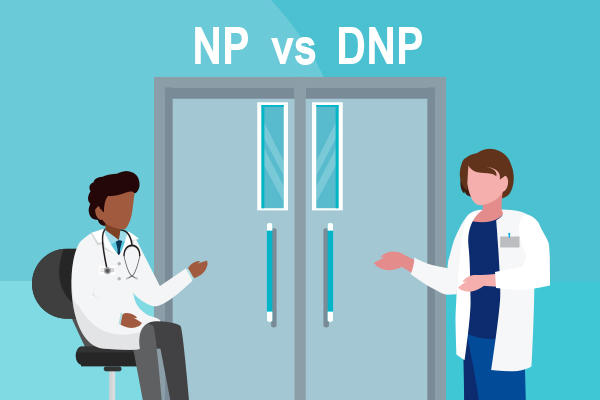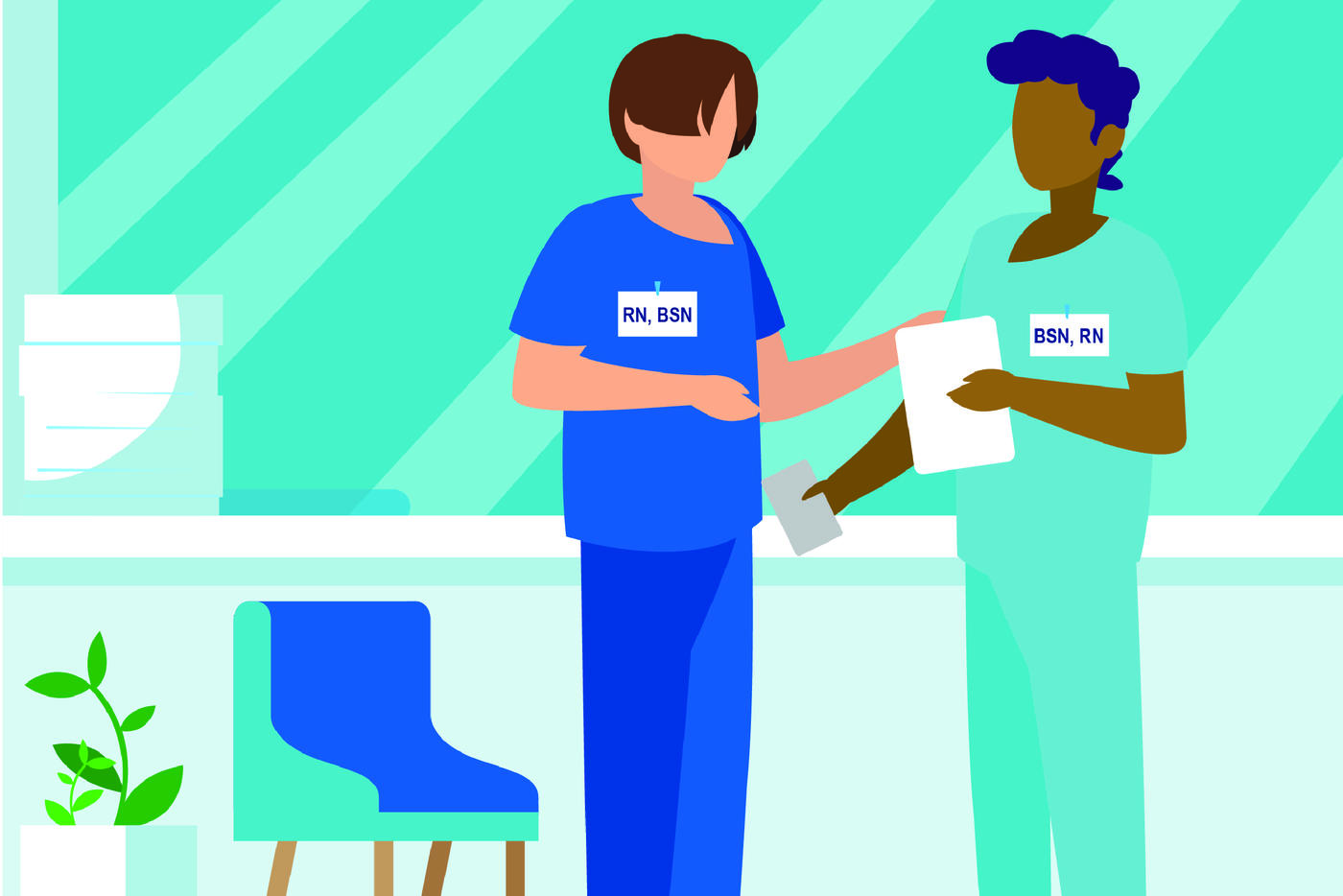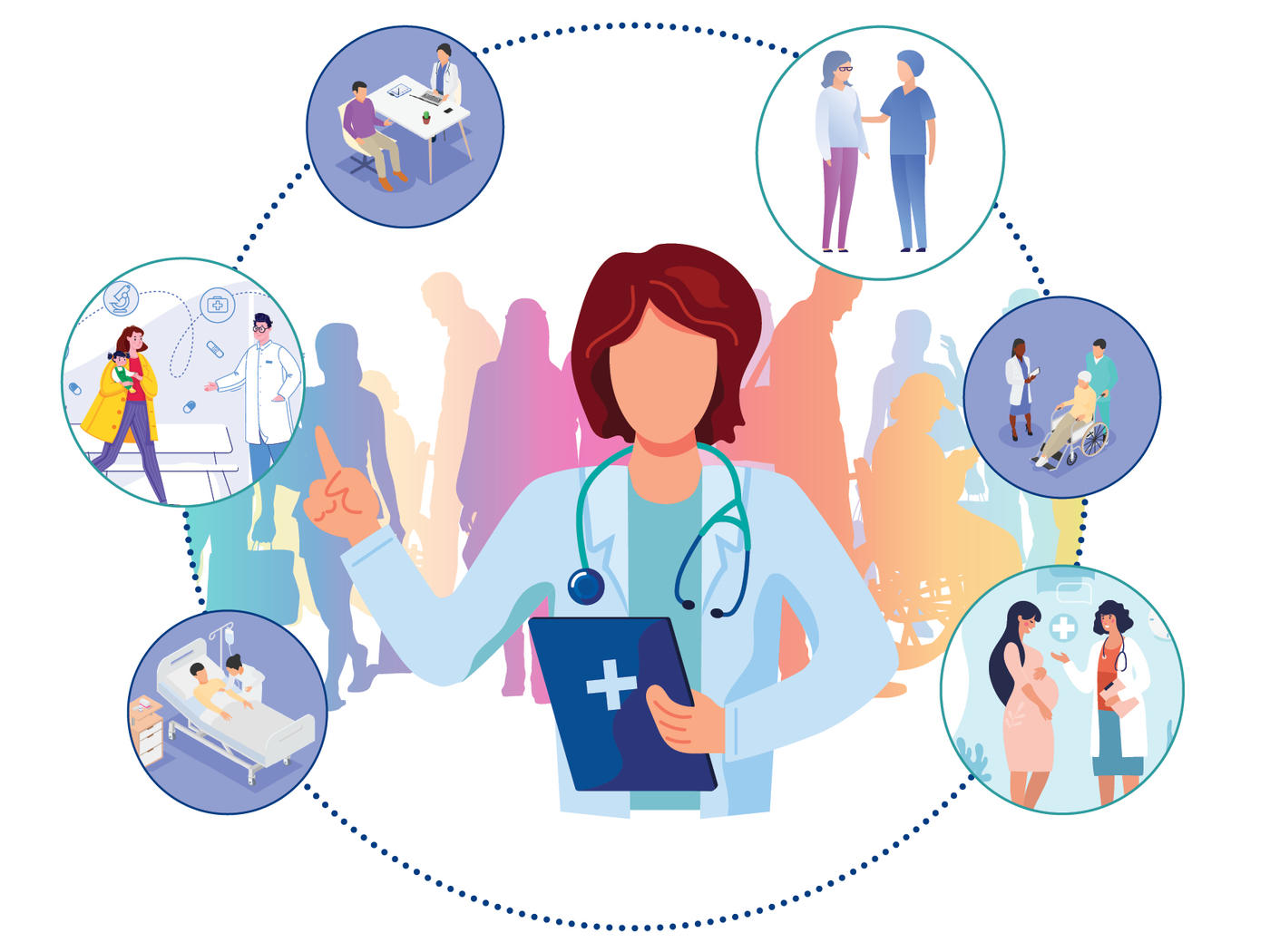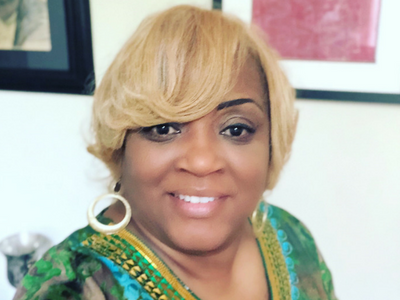Featured
Tags
Share
- Home / Blog / Nursing Today / Chamberlain Grad Shares her Experience Receiving COVID-19 Vaccination
Chamberlain Grad Shares her Experience Receiving COVID-19 Vaccination
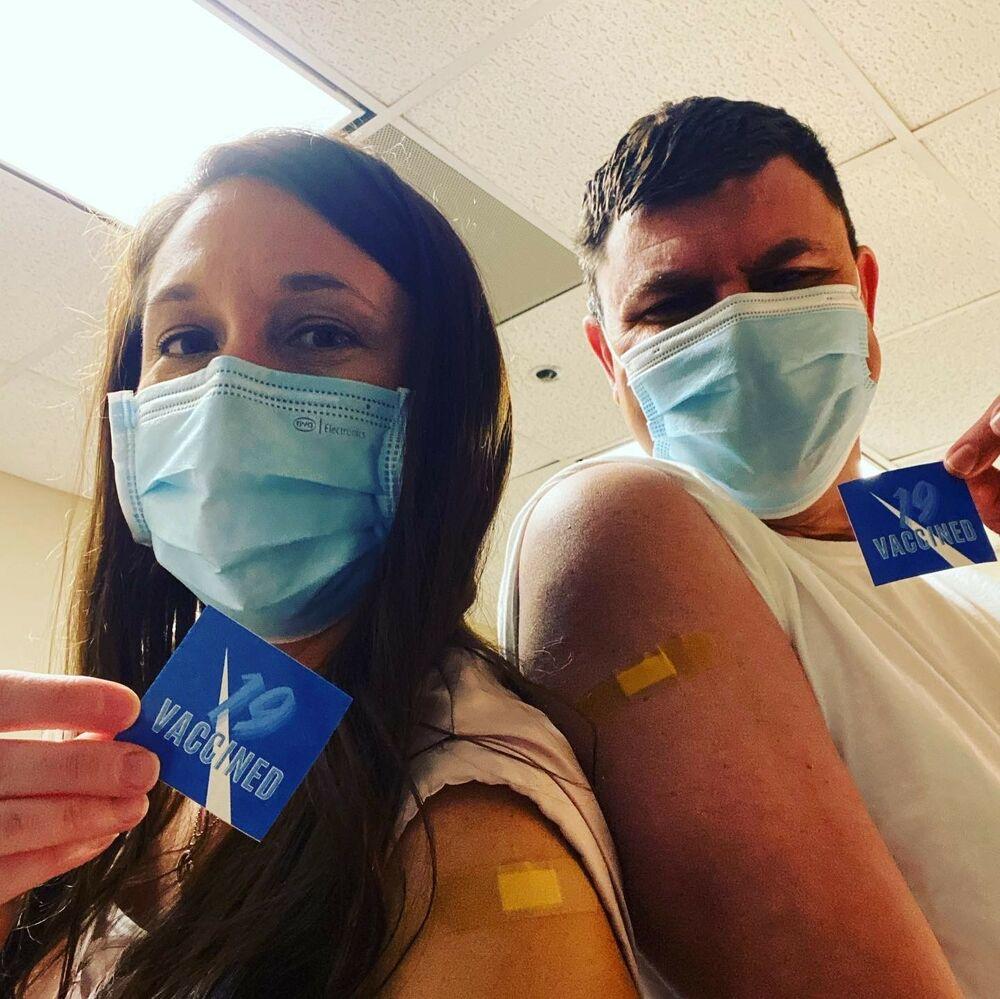
As Tiffany Pugh, MPH, RNC-MNN and her husband Jeff, a hospital chaplain, waited in line Tuesday in the cafeteria at Northwest Texas Healthcare System (NWTHS) to receive one of the United States’ first COVID-19 vaccines, she says she felt “a glimmer of hope” for the first time since March. That’s when the COVID-19 tornado hit and her role as an accreditation manager at the 495-bed Amarillo, Texas, hospital pivoted from quality control and policy making, to donning full-on PPE at patient bedsides to help families devastated by the pandemic say goodbye to their loved ones, mostly on iPads.
Pugh, a 2019 graduate of Chamberlain’s Master of Public Health program, says being one of the first front-line workers to be inoculated was so emotional because of all those families she has witnessed making their final goodbyes to loved ones.
“It has been really hard seeing people losing hope and being there at the end-of-life visits,” says the mother of two, who was a bedside nurse for 17 years before receiving her master’s in public health. “As nurses we see a lot, but I’ve never experienced anything as devastating as what COVID-19 has done to patients and their families. The vaccine is a victory of sorts in that I hope it means we can get this under control and that nurses will not have to watch so many families say goodbye. I was excited to get the vaccine, because it is a humanitarian thing to do and a sign that if we all do our part and try to help someone else, there is hope.”
Pugh, along with her husband, the hospital’s chaplain, were among the first members of Amarillo’s two hospitals to receive the vaccine. She will receive the second dose of the Pfizer vaccine in 21 days.
“Excited to be part of public health history today! COVID vaccine. Helping in COVID units every day,” she wrote in Chamberlain’s MPH Facebook group.
For Pugh, the last nine months since COVID-19 began have been especially grueling. Her post at the hospital evolves almost daily as the COVID-19 cases have significantly strained hospital resources -- but she is quick to point out that the frontline staff caring for patients are doing the hardest work. The city of Amarillo’s public health department reported an increase of 282 COVID-19 cases from Monday in Tuesday’s report card, bringing the area’s total to 27,279 total cases from the start of the pandemic. Out of the total, 6,522 are currently active, according to the Amarillo Globe News.
At the start of the pandemic last March, Pugh became part of what she’s calling the hospital’s COVID-19 Command Center, charged with calling patients to report positive results for their COVID-19 tests and walking them through quarantining and other protocols.
“You can imagine how much anxiety there was when people were told they have positive results,” she says.
That role quickly evolved with the 15-minute rapid testing results. Soon, her role transitioned to end-of-life bedside care, where donning full PPE, she would meet with a couple family members of patients who were dying as they said goodbye in person for the last time.
“We were having no visitors for COVID-19 patients, but our hospital decided that they would allow small numbers of family members to come and don PPE, just like nurses and doctors, and get to say goodbye,” she says. “The hardest ones to witness were hospital staff I knew, nurses who were working in med-surg or other floors and had a family member dying in the ICU. And so many elderly patients who were so scared. We now have an iPad program that I work with to connect COVID-19 patients with their families because the communication is so, so important.”
She says she has been able to cope with the stress thanks to the emotional and spiritual conversations, advice and support she’s received from her chaplain husband and through lots of physical exercise, especially long hikes in the woods and nature.
Prior to earning her MPH, Pugh worked in maternity with newborns and their mothers. She was drawn to the public health aspects of helping expectant moms who were from lower socioeconomic groups stay healthy before, during and after giving birth.
“I was drawn to the public health aspects, but never could I have imagined what COVID-19 would mean for public health,” she says. The lessons learned from COVID: “Public health and leadership is so important when you are confronted with something as devastating as this COVID-19 crisis. Good leadership is vital to staying on top of it.”
Meanwhile, less than 24 hours since she received the vaccine, Pugh says she is feeling great, with no side effects.
“My arm is a little sore, but less than it is when I get a flu shot,” she says. And, she’s especially excited about how the CDC has launched the V-safe After Vaccination Health Checker Program to collect data on the vaccines. “I feel like I am playing a role in helping our country collect data about the vaccine that hopefully will be very helpful moving forward.”
By Mary Beth Sammons
More from Nursing Today
Request More Information
To receive the Chamberlain University Program Guide, including associated career paths, please select a program of study.




